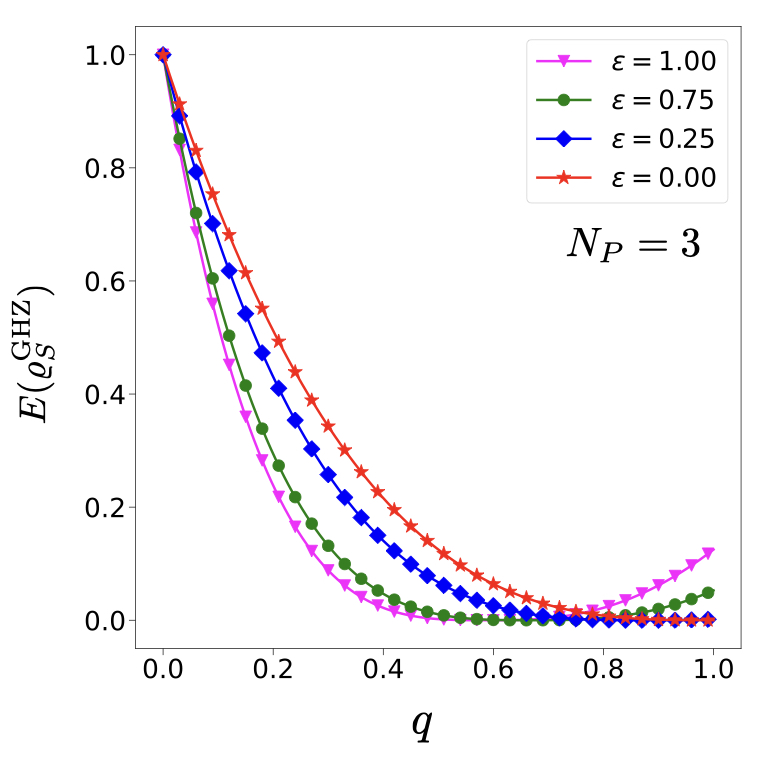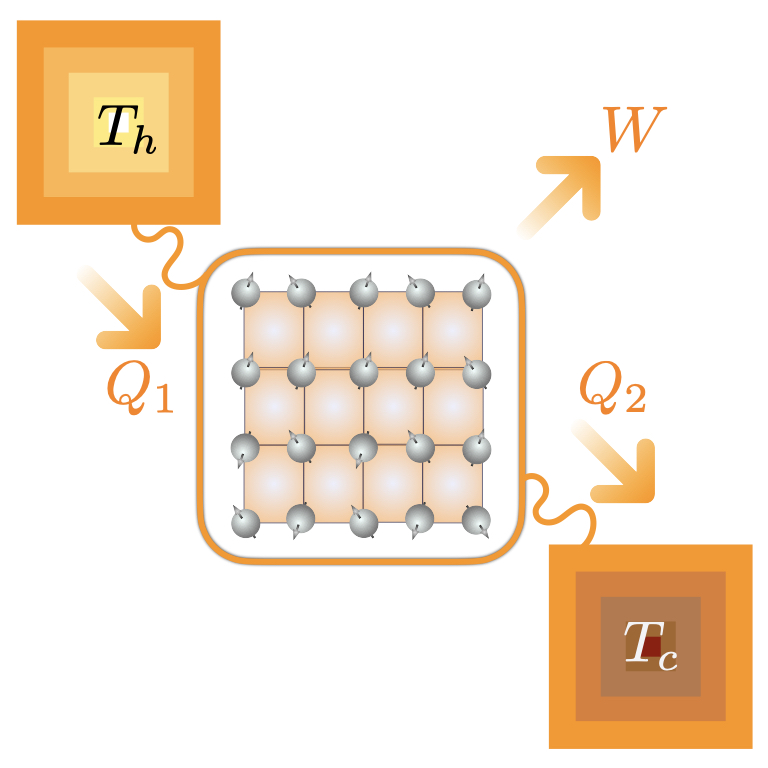Open quantum systems
Quantum systems are inevitably open to environments, and our research on open quantum systems advances in two different directions.
|
Controlling decoherence: Quantum correlations such as entanglement are usually considered to be fragile quantities, and are destroyed in the presence of even a small amount of environmental noise – thermal or otherwise. Hence it is extremely crucial to develop tools and techniques to protect quantum correlations against environmental noises, so that quantum protocols using such correlations as resources can be carried out. The environmental noise acting on a quantum system resulting in decoherence may be of various types, thereby making it difficult to develop universal strategies to protect quantum correlations. Through our research, we aim to achieve a thorough understanding of the dynamics of quantum correlations, when quantum many-body systems are subjected to various environments, so that a mechanism for controlling the decoherence can be developed under the experimental feasibility. |
 |
Related works
-
Localizing genuine multiparty entanglement in noisy stabilizer states
Harikrishnan K. J. and A. K. Pal
Journal Ref: Phys. Rev. A 108, 032404 (2023)
arXiv: 2211.01064 -
Controlling gain with loss: Bounds of localizable entanglement in multi-qubit systems
J. G. Krishnan, Harikrishnan K. J., and A. K. Pal
Journal Ref: Phys. Rev. A 107, 042411 (2023)
arXiv: 2206.07731 -
Hierarchies of localizable entanglement due to spatial distribution of local noise
R. Banerjee, A. K. Pal, and A. Sen(De)
Journal Ref: Phys. Rev. Research 4, 023035 (2022)
arXiv: 2003.02175 -
Uniform decoherence effect on localizable entanglement in random multi-qubit pure states
R. Banerjee, A. K. Pal, and A. Sen(De)
Journal Ref: Phys. Rev. A 101, 042339 (2020)
arXiv: 1907.10847
 |
Quantum thermal machines and quantum thermodynamics: The thermodynamic properties of quantum heat engines, and the possibility of obtaining quantum advantages from them over their classical counterparts have attracted a lot of attention in the past few years. Using these quantum heat machines, the laws of thermodynamics have been tested at the quantum mechanical level, and the efficiencies of these quantum heat engines have been determined. Experimental realization of such machines have also been proposed using superconducting qubits, quantum dots, and ionic systems. However, extraction of quantum advantages that are exclusive to such machines have been a topic requiring careful investigation in the last few years. Our research deals with the questions regarding the performance, working principle, and implementation of such quantum thermal machines using the tools and techniques developed for open quantum systems. |
Related works
-
Designing refrigerators in higher dimensions using quantum spin models
T. K. Konar, S. Ghosh, A. K. Pal, and A. Sen(De)
Journal Ref: Phys. Rev. A 107, 032602 (2023)
arXiv: 2112.13765 -
Designing robust quantum refrigerators in disordered spin models
T. K. Konar, S. Ghosh, A. K. Pal, and A. Sen(De)
Journal Ref: Phys. Rev. A 105, 022214 (2022)
arXiv: 2107.11668 -
Three qubits in less than three baths: Beyond two-body system-bath interactions in quantum refrigerators
A. Ghoshal, S. Das, A. K. Pal, A. Sen(De), and U. Sen
Journal Ref: Phys. Rev. A 104, 042208 (2021)
arXiv: 2012.08399 -
Necessarily transient quantum refrigerator
S. Das, A. Misra, A. K. Pal, A. Sen(De), and U. Sen
Journal Ref: Europhys. Lett. 125, 20007 (2019)
arXiv: 1606.06985